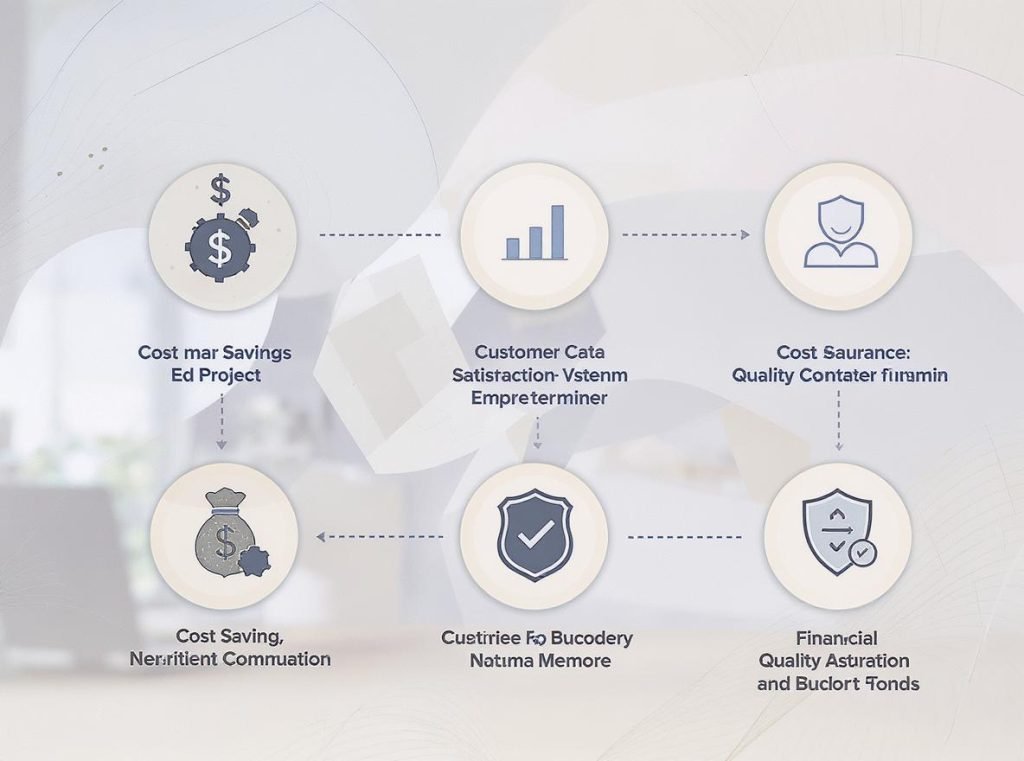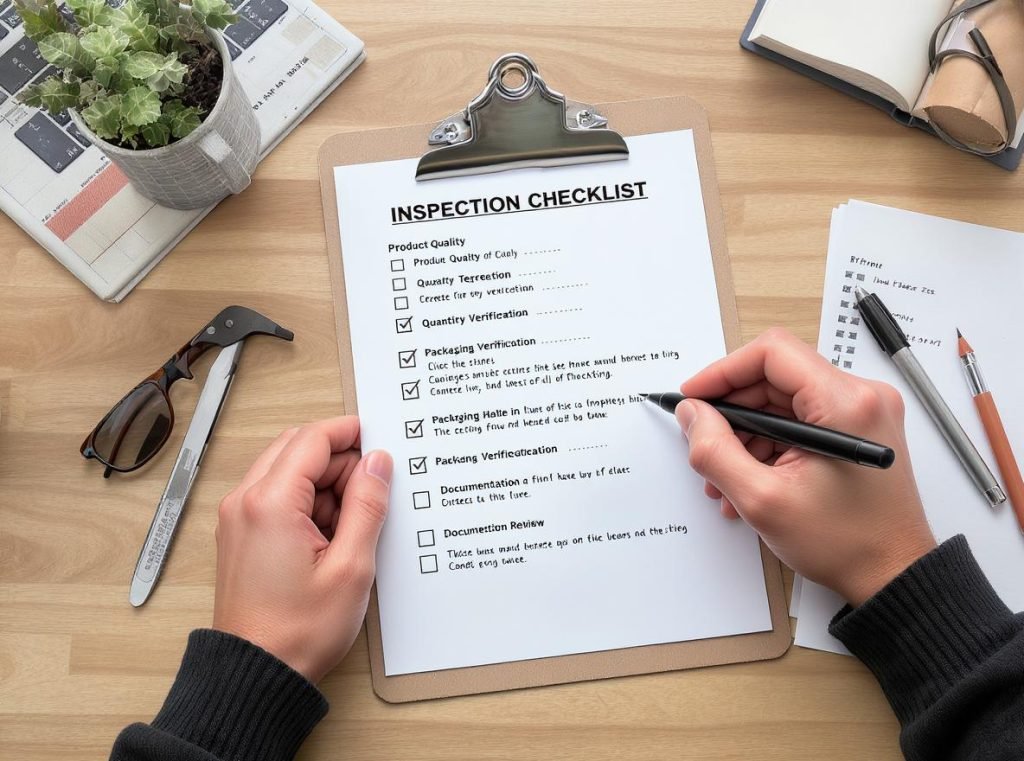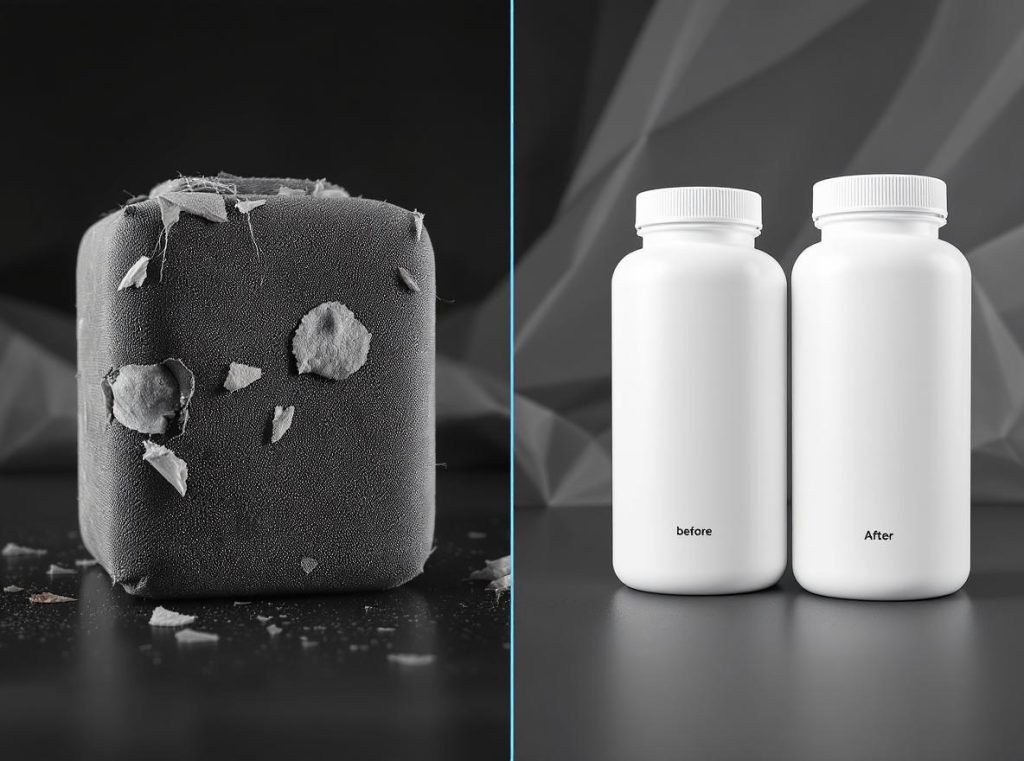You’ve spent months developing supplier relationships and finalizing product specifications. Your production is complete, and you’re ready to ship. But what if defective products, incorrect quantities, or compliance failures turn your investment into a costly disaster? This scenario affects thousands of businesses worldwide who skip the crucial final quality checkpoint.
A Pre-Shipment Inspection (PSI) is a systematic quality control process conducted when 80-100% of production is complete, involving thorough evaluation of randomly selected samples following ISO 2859-1 and AQL standards. PSI serves as your final safeguard against quality failures, ensuring products meet specifications, comply with regulations, and maintain expected standards before leaving the manufacturing facility.
Understanding PSI importance can transform your sourcing success and protect your business from expensive quality-related disasters that destroy customer relationships and drain profits.
Table of Contents
ToggleWhat Exactly is Pre-Shipment Inspection?
Many businesses confuse PSI with basic quality checks, missing the comprehensive nature of this critical process that can make or break international trade success.
Pre-shipment inspection is a comprehensive quality control assessment conducted by independent third-party agencies when production reaches 80-100% completion and products are packed for shipment. This systematic evaluation follows internationally recognized statistical sampling procedures like ISO 2859-1 and Acceptable Quality Limits (AQL) to verify product quality, quantity accuracy, and regulatory compliance.

The inspection process serves multiple functions beyond simple quality checking. PSI acts as an independent verification system that provides objective assessment of your entire order, eliminating the bias that might exist in supplier-conducted quality checks.
Statistical sampling methodologies ensure inspectors evaluate representative samples that accurately reflect the entire production batch quality. This scientific approach provides reliable data for making informed shipping decisions rather than relying on guesswork or supplier assurances.
Three defect classification levels guide the inspection process:
- Critical defects: Safety issues or mandatory regulation violations that could cause harm or legal problems
- Major defects: Significant functionality problems that affect primary product use
- Minor defects: Cosmetic issues that don’t impact core product performance
The timing aspect is crucial for PSI effectiveness. Conducting inspections when 80-100% completion ensures adequate sample availability while providing flexibility to address identified issues before shipping deadlines.
Why Do Modern Businesses Need Pre-Shipment Inspections?
Global supply chains create unprecedented risks that traditional quality control methods cannot adequately address in today’s competitive marketplace.
Modern businesses need pre-shipment inspections because international trade involves significant quality, compliance, and financial risks that distance, cultural differences, and varying manufacturing standards amplify. PSI provides essential risk mitigation, regulatory compliance verification, and brand protection that prevents costly disasters and maintains customer trust.

Risk Mitigation and Financial Protection
International sourcing exposes businesses to quality uncertainties that can devastate profitability. Without direct production oversight, you’re essentially trusting suppliers to maintain standards without independent verification.
The financial impact of quality failures extends beyond immediate replacement costs. Product recalls, customer refunds, legal liabilities, and brand damage create ripple effects that can affect business operations for months or years.
PSI functions as quality insurance, providing independent verification that protects your investment before problems become expensive disasters. The cost of inspection typically represents less than 0.1% of order value while potentially preventing losses that could reach 15-30% of shipment value.
Regulatory Compliance Requirements
Many countries mandate pre-shipment inspection certificates for customs clearance, making PSI a legal requirement rather than optional quality measure. Products must comply with destination country standards including safety regulations, labeling requirements, and material specifications.
Compliance failures at customs can result in:
- Complete shipment rejection and return costs
- Extended storage fees while resolving issues
- Legal penalties and import licensing problems
- Delays that disrupt customer delivery schedules
Brand Reputation Protection
Your brand reputation represents years of investment that can be destroyed overnight by quality failures reaching customers. PSI helps maintain consistent brand standards by ensuring products meet specifications before market release.
Customer satisfaction scores improve dramatically when products consistently meet expectations, leading to higher retention rates and positive reviews that attract new customers.
What Are the Main Benefits of Pre-Shipment Inspection?
Understanding specific PSI benefits helps justify the investment and demonstrates how this process delivers measurable returns for your business.
The main benefits of pre-shipment inspection include comprehensive quality assurance, significant cost savings, enhanced customer satisfaction, supply chain optimization, and legal protection. These advantages combine to create a defensive quality system that prevents problems while building competitive advantages through consistent quality delivery.

Comprehensive Quality Assurance and Defect Prevention
PSI provides systematic evaluation of product functionality, appearance, durability, and performance that goes beyond visual inspection. This comprehensive approach identifies issues that might not be apparent in casual quality checks.
The three-tier defect classification system ensures critical safety issues receive immediate attention while major functionality problems and minor cosmetic issues are properly categorized for appropriate action.
Quality assurance extends beyond individual product inspection to include packaging adequacy, labeling accuracy, and documentation completeness that affects successful delivery and customer satisfaction.
Measurable Cost Savings and Efficiency Gains
The inspection process prevents much higher costs associated with product returns, customer complaints, and remedial actions that occur when quality issues reach customers.
Financial benefits include:
| Cost Category | Without PSI | With PSI | Potential Savings |
|---|---|---|---|
| Return Shipping | $3,000-5,000 per container | $200-500 inspection fee | 85-95% cost reduction |
| Replacement Production | Rush fees + expedited shipping | Prevention of issues | 70-90% cost avoidance |
| Customer Service | Complaint handling + refunds | Proactive quality assurance | 60-80% reduction in issues |
| Legal/Compliance | Penalties + correction costs | Preventive verification | 90-100% risk elimination |
Enhanced Customer Satisfaction and Loyalty
Consistent quality delivery through PSI builds customer trust and satisfaction that translates into business growth and competitive advantages.
When products consistently meet specifications, customers develop confidence in your reliability and quality commitment. This trust leads to increased order frequency, larger purchase volumes, and valuable referrals that drive organic business growth.
Quality consistency also reduces customer service burdens, allowing your team to focus on growth activities rather than problem resolution.
Supply Chain Optimization and Transparency
PSI creates transparency throughout the supply chain by providing detailed information about product quality before making acceptance decisions. This visibility enables better inventory planning and reduces disruptions caused by quality issues.
The inspection process encourages suppliers to implement better quality control systems, knowing their work will receive professional evaluation. This accountability drives overall supply chain quality improvements that benefit all stakeholders.
Documentation from PSI reports supports data-driven decision making about supplier performance, product development improvements, and quality system enhancements.
When Should You Schedule Pre-Shipment Inspections?
Proper timing maximizes PSI effectiveness while maintaining production efficiency and shipping schedule adherence.
Schedule pre-shipment inspections when 100% of production is complete and at least 80% of goods are packed for shipment. Book inspections at least 2 working days before intended loading dates to allow sufficient time for result review and corrective action implementation if needed.

The 80% packing completion standard ensures inspectors can evaluate both product quality and packaging adequacy while providing manufacturers flexibility to address identified issues without significant schedule disruption.
Different product categories may require timing adjustments based on complexity and correction possibilities:
High-Value Electronics: Schedule at 85-90% completion to allow time for functional testing, calibration adjustments, and component replacement if necessary.
Textile and Apparel Products: 80% completion works effectively since most issues involve visual defects that are easily identified and corrected through re-processing or replacement.
Packaging and Display Materials: Consider earlier scheduling at 70-75% completion, as packaging defects often require material reordering rather than simple corrections.
The two-day advance booking recommendation provides adequate time for thorough inspection, report generation, result communication, and decision-making about shipment approval or corrective actions.
Smart scheduling also considers supplier production patterns and capabilities. Established suppliers with proven quality systems may need less buffer time, while new suppliers or complex products benefit from earlier intervention opportunities that allow comprehensive issue resolution.
What Does Comprehensive Pre-Shipment Inspection Cover?
Understanding PSI scope helps you appreciate the thorough evaluation process that protects your investment and ensures customer satisfaction.
Comprehensive pre-shipment inspection covers product quality assessment, quantity verification, packaging evaluation, labeling accuracy, documentation review, and regulatory compliance checking. This systematic approach examines workmanship, functionality, measurements, materials, and compliance requirements to provide complete order validation before shipment approval.

Detailed Product Quality Assessment
Quality evaluation forms the core of every professional pre-shipment inspection, involving multiple assessment layers that ensure comprehensive product evaluation.
Visual and Physical Inspection: Surface defects, color consistency, finish quality, and overall appearance receive careful examination. This includes checking for scratches, dents, discoloration, assembly issues, and manufacturing marks that could affect customer perception or product functionality.
Dimensional Accuracy Verification: Precise measurements confirm products meet specified dimensions within acceptable tolerances. Critical dimensions receive special attention, including length, width, height, thickness, and any functional measurements that affect performance or compatibility.
Functional and Performance Testing: Products undergo operational testing to verify they perform as intended under normal use conditions. This might include switch testing for electronics, weight capacity verification for furniture, seal integrity testing for containers, or operational testing for mechanical components.
Material Quality Analysis: Inspectors verify actual materials match specifications, checking for unauthorized substitutions that could affect performance, safety, or durability. This includes texture evaluation, flexibility testing, and comparison against approved samples.
Thorough Quantity and Packaging Verification
Accurate quantity verification prevents logistical problems and financial disputes while packaging assessment ensures products survive transportation intact.
Quantity verification involves systematic counting procedures:
- Total piece count confirmation against purchase orders
- SKU verification ensuring correct product variants and configurations
- Carton count and individual weight verification
- Random sampling to confirm consistent packing across all containers
Packaging evaluation examines multiple protection layers:
Unit Packaging: Individual product protection adequacy, including cushioning materials, moisture barriers, and damage prevention measures appropriate for product sensitivity.
Inner Packaging: Multi-product grouping systems, organizational efficiency, and handling convenience for distribution centers and retail environments.
Export Carton Assessment: Structural integrity, weight distribution, stacking capability, and transportation suitability for international shipping requirements.
Shipping Mark Verification: Accuracy of destination information, handling instructions, and identification codes required for logistics tracking and customs processing.
Documentation and Compliance Verification
Complete documentation review ensures smooth customs clearance and regulatory compliance in destination markets.
Essential documentation includes:
- Product certificates and laboratory test reports
- Compliance documentation for target market regulations
- Packing lists with accurate product descriptions and quantities
- Commercial invoice accuracy and completeness
- Shipping marks correspondence with documentation
- Special handling or storage requirement notifications
How Does PSI Prevent the Most Common Trade Problems?
Understanding how PSI addresses typical international trade challenges demonstrates its value in protecting business operations and customer relationships.
Pre-shipment inspection prevents common trade problems including quality inconsistencies, packaging failures, labeling errors, quantity discrepancies, and regulatory non-compliance. By identifying these issues before shipment, PSI eliminates costly delays, customer complaints, returns, and legal complications that can devastate business relationships and profitability.

Quality Inconsistencies and Manufacturing Variations
Manufacturing quality varies significantly, especially with new suppliers, complex products, or high-volume production runs. PSI catches these variations before they reach customers and damage relationships.
Color inconsistencies plague textile, printed materials, and consumer products. Professional inspectors compare actual colors against approved samples using standardized lighting conditions, ensuring brand consistency across all markets and production batches.
Functional defects in electronics, appliances, mechanical products, or tools can render entire shipments unusable while creating safety hazards. Pre-shipment functional testing identifies these issues when correction remains possible and cost-effective.
Material substitutions occur when suppliers face raw material shortages or cost pressures. PSI material verification prevents safety issues, performance problems, and compliance violations that unauthorized substitutions might create.
Dimensional variations affect product compatibility, assembly requirements, and customer satisfaction. Systematic measurement verification ensures products meet specified tolerances required for proper function and customer acceptance.
Packaging and Transportation Problems
Inadequate packaging leads to damage during international transportation, resulting in insurance claims, customer complaints, and replacement costs that can exceed original order values.
Common packaging issues PSI prevents:
- Insufficient cushioning for fragile or sensitive products
- Incorrect carton sizes causing product movement and impact damage
- Missing or incorrect shipping labels causing delivery delays and misrouting
- Inadequate moisture protection for materials sensitive to humidity
- Poor stacking design leading to compression damage during transport
Weight and dimension errors trigger additional shipping charges, customs complications, or delivery failures. Inspector verification ensures measurements match specifications and shipping requirements while identifying potential logistical problems.
Quantity Discrepancies and Product Mix-ups
Incorrect quantities and SKU mix-ups create immediate operational problems upon shipment arrival, disrupting inventory management and customer fulfillment.
Short Shipments: Missing products delay sales operations, disappoint customers waiting for specific items, and disrupt marketing campaigns or seasonal promotions planned around complete inventory availability.
Overpacking Issues: Extra products create inventory management complications, potential customs valuation problems, and storage challenges that increase operational costs.
SKU Mix-ups: Wrong product variants, colors, or specifications can destroy marketing campaigns, seasonal sales events, or customer-specific orders that depend on exact product configurations.
Regulatory and Compliance Failures
International trade regulations vary significantly between countries, creating compliance challenges that can result in shipment rejection, legal penalties, or market access restrictions.
PSI compliance verification prevents:
- Safety standard violations that could trigger product recalls
- Labeling requirement failures causing customs delays
- Material restriction violations in environmentally sensitive markets
- Documentation deficiencies preventing customs clearance
- Certification omissions required for specific product categories
What Should You Look for in Professional Inspection Services?
Selecting the right inspection partner directly impacts PSI effectiveness and your business protection, making careful evaluation essential for program success.
Look for inspection services with relevant industry certifications, deep expertise in your product categories, comprehensive reporting capabilities, global coverage, and proven methodology aligned with international standards. The best providers combine technical knowledge with clear communication and actionable recommendations that support informed business decisions.

Professional Certifications and Qualifications
Quality inspection requires specialized knowledge and systematic approaches that only trained professionals can provide effectively.
Essential certifications include:
- ISO 9001:2015 quality management system certification demonstrating commitment to consistent service quality
- Industry-specific qualifications for your product categories (electronics, textiles, toys, medical devices, etc.)
- AQL sampling methodology training ensuring proper statistical sampling procedures
- Destination market regulation knowledge for compliance verification in your target countries
Membership in professional organizations like the Testing, Inspection and Certification (TIC) Council demonstrates commitment to industry standards and continuous professional development.
Industry Expertise and Product Knowledge
Generic inspection services cannot provide the specialized knowledge required for effective quality assessment in specific industries or product categories.
Your inspection partner should demonstrate:
Product-Specific Understanding: Deep knowledge of your industry’s unique quality standards, common defect patterns, and critical assessment points that affect customer satisfaction.
Market Regulation Expertise: Current knowledge of destination country requirements, safety standards, and compliance documentation needed for successful market entry.
Manufacturing Process Knowledge: Understanding of production methods, quality control capabilities, and potential failure points specific to your product categories.
Comprehensive Reporting and Communication
Professional inspection reports should provide clear, actionable information that supports informed decision-making about shipment approval or corrective actions.
| Report Component | Professional Standard | Business Value |
|---|---|---|
| Visual Documentation | High-resolution photos and videos | Clear evidence for supplier discussions and issue resolution |
| Detailed Analysis | Specific defect descriptions with quantities and severity ratings | Enables targeted corrective actions and improvement planning |
| Pass/Fail Recommendations | Clear approval status with supporting reasoning | Supports confident shipping decisions |
| Supplier Communication Summary | Factory response and cooperation assessment | Tracks supplier performance and relationship quality |
| Actionable Next Steps | Specific recommendations for issue resolution | Guides efficient problem-solving and timeline management |
Global Coverage and Local Presence
International sourcing requires inspection services with broad geographic coverage and local expertise in your manufacturing regions.
Look for providers offering:
- Consistent service quality across all manufacturing locations
- Local inspectors with cultural understanding and language capabilities
- Same-day reporting regardless of time zone differences
- Emergency inspection availability for compressed production schedules
- Regional expertise in local regulations and manufacturing practices
How Can PSI Transform Your Supplier Relationships?
Pre-shipment inspection creates positive changes in supplier relationships that extend far beyond quality control, building foundations for long-term partnership success.
PSI transforms supplier relationships by establishing transparent quality expectations, providing objective performance feedback, encouraging continuous improvement, and creating documentation that supports fair dispute resolution. This professional approach builds mutual trust and drives systematic quality enhancements that benefit all parties.

Building Trust Through Transparency and Accountability
PSI eliminates guesswork from supplier relationships by establishing clear, measurable quality standards that both parties understand and accept. This transparency reduces frustration and miscommunication that often strain business relationships.
Objective third-party assessment removes emotion from quality discussions. Instead of subjective complaints, you present factual inspection reports documenting specific issues with photographic evidence and detailed descriptions.
Suppliers appreciate this professional approach because it provides clear guidance about expectations and fair evaluation of their performance. This clarity enables them to focus improvement efforts on areas that truly matter to your business success.
Encouraging Proactive Quality Improvement
The inspection process motivates suppliers to implement better quality control systems throughout production rather than relying solely on final inspection to catch problems.
When manufacturers know their work will receive professional evaluation, they naturally invest more effort in:
- Employee training and skill development
- Equipment maintenance and calibration
- Process standardization and documentation
- Raw material quality control
- In-process inspection procedures
These systematic improvements benefit all the supplier’s customers, creating positive industry-wide quality trends that support your long-term sourcing success.
Creating Performance Documentation and Feedback Loops
PSI reports provide valuable performance data that supports continuous improvement discussions and supplier development programs.
Regular inspection data helps suppliers:
- Track performance trends over time
- Identify recurring issues requiring systematic solutions
- Benchmark their quality against industry standards
- Demonstrate improvement progress to potential customers
- Prioritize investment in quality control enhancements
This data-driven approach to supplier relationships creates professional partnerships focused on mutual success rather than adversarial negotiations about quality problems.
Supporting Fair Partnership Development
Documentation from PSI reports supports fair dispute resolution when issues arise, providing objective evidence for discussions about corrections, replacements, or pricing adjustments.
Long-term partnerships develop when suppliers view PSI as quality improvement support rather than fault-finding criticism. The best suppliers welcome inspections as opportunities to demonstrate their capabilities and identify enhancement opportunities.
Quality feedback loops create continuous improvement cycles that strengthen supplier relationships while reducing defect rates and quality-related costs over time.
Summary
Pre-shipment inspection serves as your essential quality assurance safeguard in international trade, providing comprehensive protection against quality failures, compliance violations, and costly supply chain disruptions. The systematic verification process identifies and resolves issues before shipment while building stronger supplier relationships through transparent, professional quality standards that drive continuous improvement throughout your supply chain.

Ready to protect your business with professional quality assurance that ensures every shipment meets your exact specifications? Contact Acreet today for expert packaging inspection services and custom packaging solutions designed to safeguard your products throughout the global supply chain. Our experienced team understands the critical importance of quality packaging in protecting your investment and maintaining customer satisfaction worldwide.


